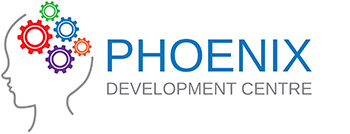Frequently Asked Questions
Autism, or autism spectrum disorder (ASD), refers to a broad range of conditions characterized by challenges with social skills, repetitive behaviors, speech and nonverbal communication.Autism is a spectrum disorder, each person with autism has a their own set of strengths and challenges. The ways in which people with autism learn, think and problem-solve can range from highly skilled to severely challenged.
In toddlers and babies some signs would no social smiles or other warm, joyful expressions and limited or no eye contact at 6 months. By 9 months, no sharing of vocal sounds, smiles or other nonverbal communication. By 12 months, no babbling, no use of gestures to communicate, no response to name when called. By 16 months, no words. By 24 months, no meaningful, two-word phrases.
If you have concerns about your child’s development, contact your pediatrician as soon as possible. Diagnosis can also be made by professionals who have gone through specific training, such as doctors, psychologists and psychological associates, and registered nurse practitioners.
Autism’s most-obvious signs tend to appear between 2 and 3 years of age. In some cases, it can be diagnosed as early as 18 months. Some developmental delays associated with autism can be identified and addressed even earlier.
Applied Behavior Analysis (ABA) is a science that focuses on improving specific behaviors, such as social skills, language and communication, reading, cognitive and academic skills, as well as daily living skills and safety awareness. Intensive ABA programs provide 1:1 structured therapy sessions and targets improving socially significant behaviours. ABA is effective for children and adults with psychological disorders and can be used in different settings including homes, schools and workplaces.
Intensive Behavioural intervention is an intense treatment approach for children with autism using the principles of applied behaviour analysis.
Comprehensive ABA interventions are aimed at producing changes in specific skills that impact global levels of functioning such as IQ,adaptive skills and social functioning over an extended period of time either in the home,centre or community setting. For effective treatment, it is recommended that programming is delivered for 20-40 hours per week.
Focused ABA interventions are designed to address specific behavior decelerations such as aggression,self injury and other challenging behaviors.A functional behavior assessment is often conducted to identify the variables behind the problem behavior and this information is then used to develop the individualized treatment. Interventions are also used to address skills deficits, when standard teaching and parenting practices are unsuccessful. These interventions are short term and time limited.
After an initial skills/behavior assessment is completed, a behaviour plan is created to identify areas of concerns across all domains and the number of hours per week will be determined by the amount of programming that is required. A minimum of 6 hours is required for this program but the more hours the learner has the more skills can be taught and practiced.

